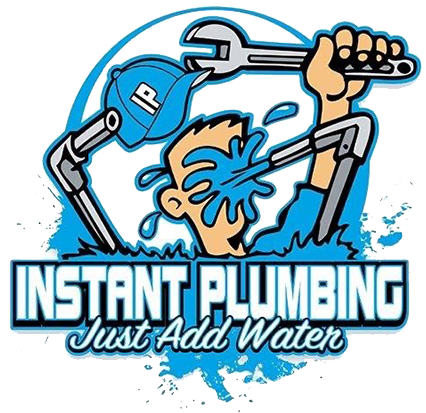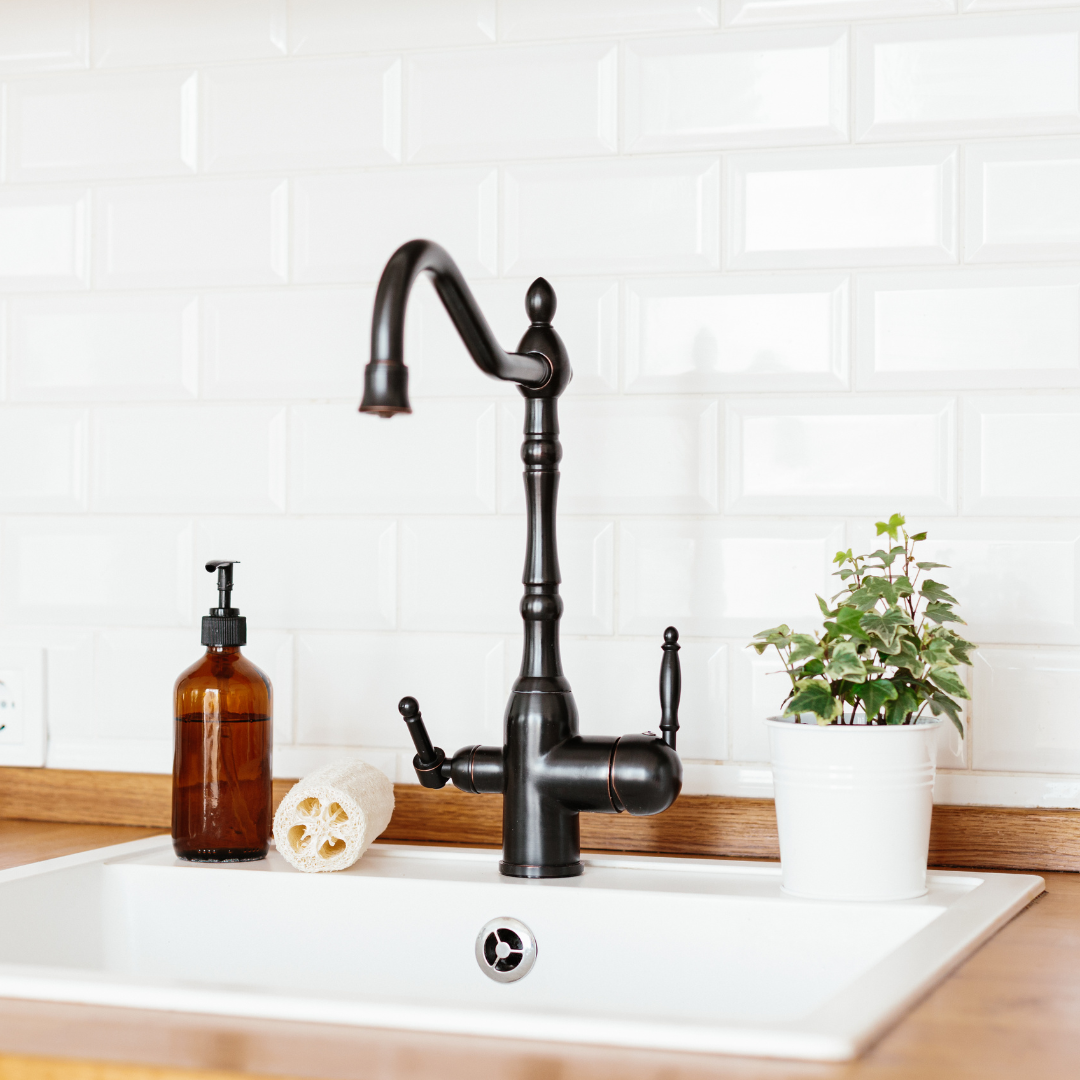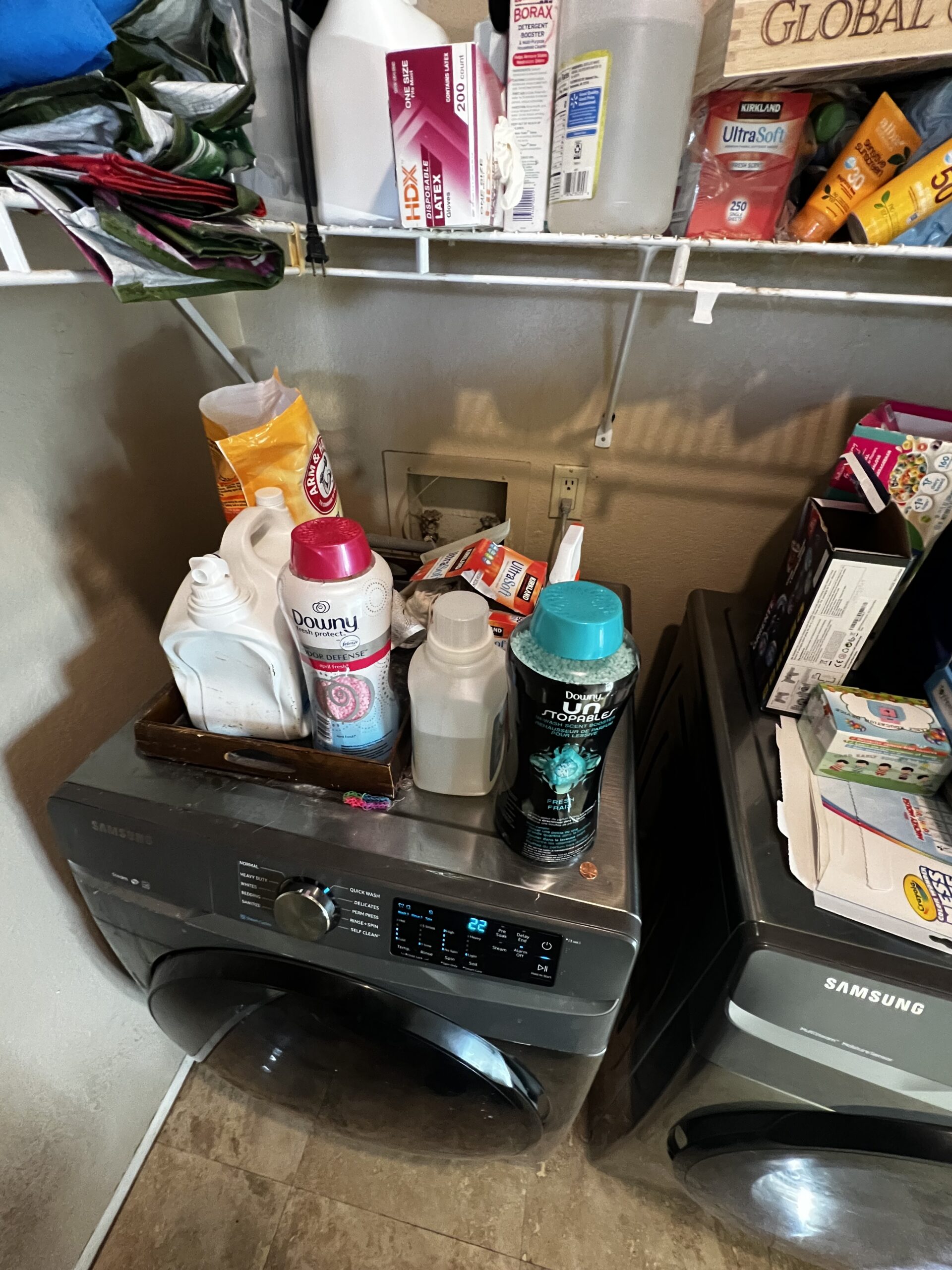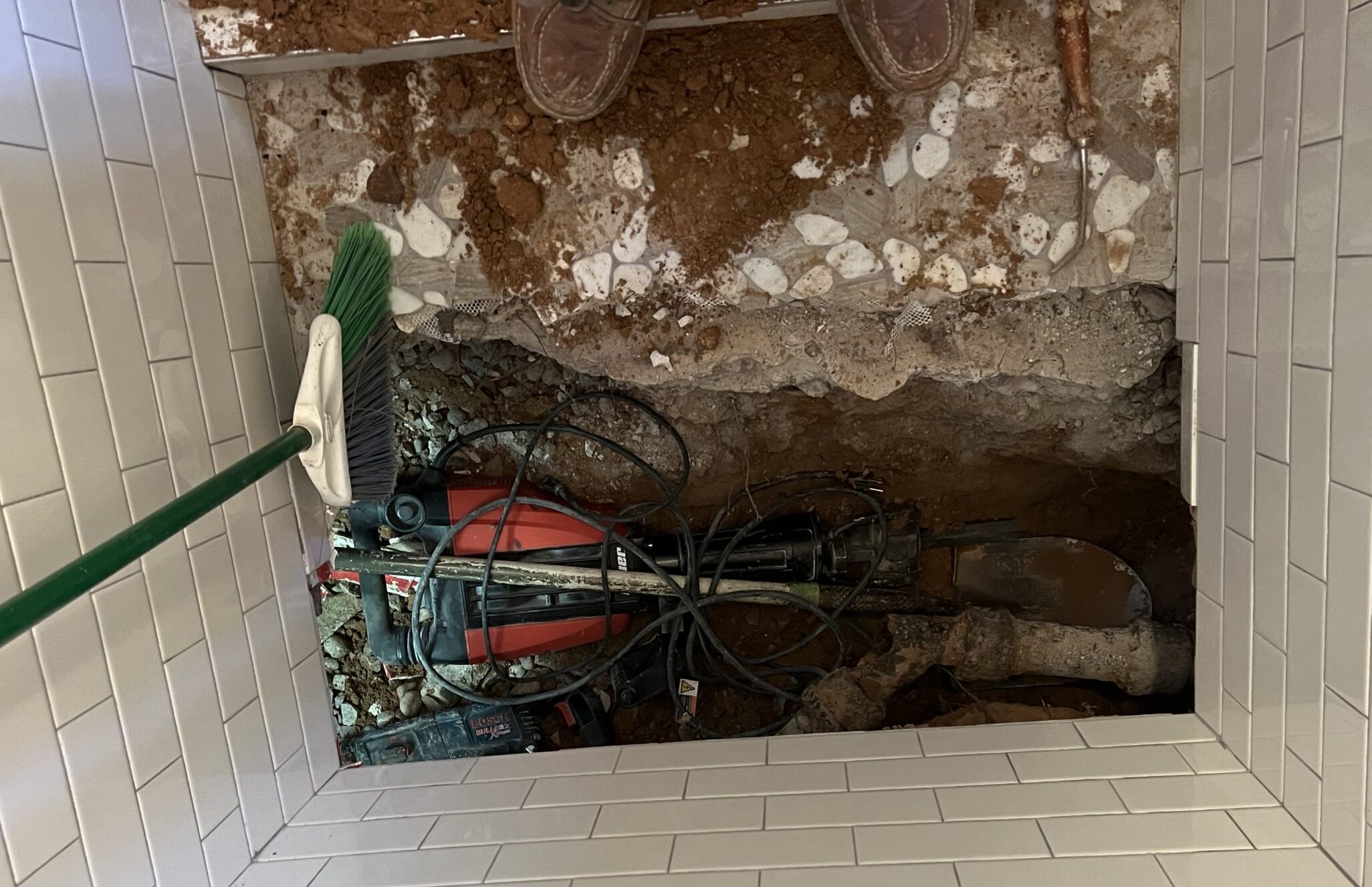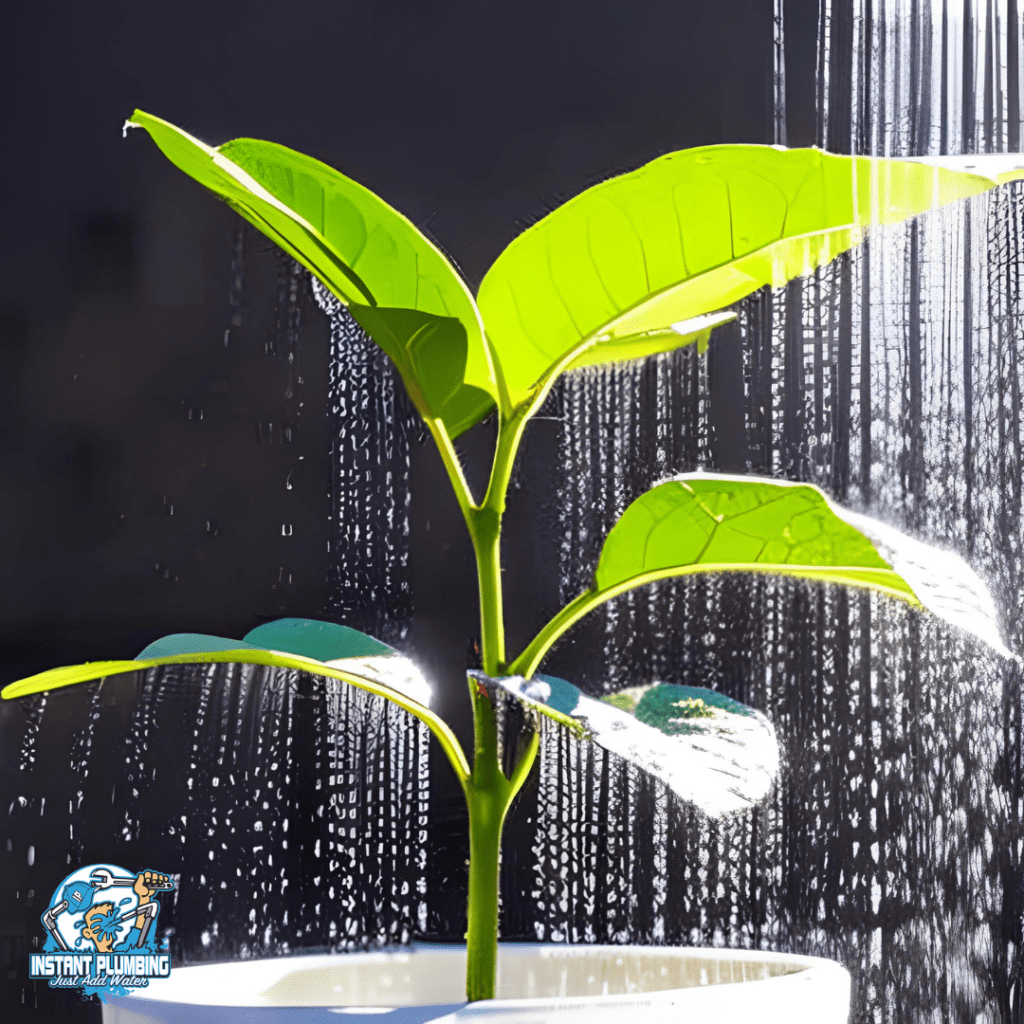
The use of softened water on plants is a widely debated topic among the green thumb community. A cursory internet search (which may have brought you here) will show many different theories on the use of softened water on plants. Every opinion from using softened water on plants, to never using any tap water whatsoever, can all be found. Each theory has its pros and cons and might make sense depending on an individual’s given situation. Because there are so many different schools of thought, we decided to break down to a few of the most common options when it comes to watering your plants. Hopefully, this will help provide you with the best solution for your greenery.
Occasionally Using Softened Water, In Combination With Rain Water
To determine if softened water will be a viable watering solution for your plants, you will first want to determine HOW your water is softened. Water softeners typically use either salt or potassium to soften the water and reduce buildup. When watering your plants, you will want to be mindful of how much sodium (or salt) is in the water. While softened water usually has a sodium content well below the suggested standards for human and animal consumption, plants may be more sensitive and react to the small amounts of sodium in the water. If you have watered your plants with softened water and notice they appear to be drying out or even dying, you should consider switching your water source to either rainwater or traditional tap water. Think of a delicious salty snack and how it makes you thirsty for water. Well, if we are giving our plants “salty water” (albeit, very low levels of salt), our little green friends may still be thirsty and in need of a different water source. If you have a water softener and want to use non-softened water, you may need to revisit the information provided during the installation of your unit. However, hose bib connections on the exterior of a home typically are not connected to the soft water supply, unless you specifically requested a modification prior to your softener’s installation. This means you should be able to access non-softened water from your hose bib(s) for your plants. While we at Instant Plumbing and Rooter are expert Plumbers, we are not arborists or professional green thumbs. We always want to help our customers get the information they require for all of their household plumbing needs. So the next time you have a plumbing concern or emergency, make sure to call Instant Plumbing and Rooter to schedule an appointment for fast and friendly plumbing services!
Using Strictly Rainwater On Your Plants
Many garden enthusiasts believe rainwater is the best possible source of water for your plants. The reasons for this are simple; rainwater is natural, rainwater is free, and rainwater has not been chemically treated like tap and filtered water commonly is. While all of these are true, using rainwater on plants may come with some drawbacks. For one thing, if you live in a dry climate, like we do here in Arizona, then you may not be able to collect enough rainwater to sustain your plants. If you do collect enough water, you will need to research how to properly store rainwater and whether or not it needs to be treated for long-term storage to be used throughout the dry seasons. If you live in a climate where rainwater is abundant and dry seasons are short, using this method for watering plants may be the best fit for you. In the end, you should ask yourself if rainwater is a feasible solution for your watering needs before deciding to fully commit to using it exclusively. While we at Instant Plumbing and Rooter are expert Plumbers, we are not arborists or professional green thumbs. We always want to help our customers get the information they require for all of their household plumbing needs. So the next time you have a plumbing concern or emergency, make sure to call Instant Plumbing and Rooter to schedule an appointment for fast and friendly plumbing services!
Using Tap Water, But Never Ever Softened Water
Tap water is commonly used by many for watering yards and plants. Many people choose to use tap water exclusively for their plant watering needs. This makes sense as tap water is readily available and inexpensive when compared to the cost of filtered water. However, some plant pros have expressed concern about the chlorine in tap water. A simple way to negate this is to let the water sit in a clean pitcher or container for 24 hours to allow the chlorine to dissipate prior to using it on your greenery. While we at Instant Plumbing and Rooter are expert Plumbers, we are not arborists or professional green thumbs. We always want to help our customers get the information they require for all of their household plumbing needs. So the next time you have a plumbing concern or emergency, make sure to call Instant Plumbing and Rooter to schedule an appointment for fast and friendly plumbing services!
Frequently Asked Questions
Q: Can I use softened water on my house plants?
A: Using softened water on plants is a topic with varied opinions. Softened water typically contains sodium, which, in small amounts, might not be harmful to humans and animals but can affect plants. If you notice your plants drying out or showing signs of distress after using softened water, it’s advisable to switch to rainwater or traditional tap water. Remember, plants might react differently to the sodium content in softened water.
Q: How does the type of water softener affect plant watering?
A: The impact of softened water on plants depends on how the water is softened. Water softeners usually use salt or potassium. The sodium content in salt-softened water can be an issue for plants. If you’re using a water softener and want to use non-softened water for your plants, check if your outdoor hose bib is connected to the soft water supply. Typically, outdoor connections provide non-softened water, making them a safe choice for watering plants.
Q: Is rainwater a good option for watering plants?
A: Many gardening enthusiasts prefer rainwater for plants as it’s natural, free, and untreated. However, the feasibility of using rainwater depends on your climate. In dry areas, collecting enough rainwater can be challenging. If you can collect sufficient rainwater, research proper storage and treatment methods for long-term use. In regions with abundant rainfall, using rainwater can be an excellent choice for plant watering.
Q: What are the concerns with using tap water for plants, and how can they be addressed?
A: While tap water is a convenient and cost-effective option for watering plants, concerns about chlorine content are common. To mitigate this, let the tap water sit in a clean container for about 24 hours before use. This allows the chlorine to dissipate, making the water safer for your plants. This simple step can make tap water a viable option for watering your greenery.
Q: Should I ever use softened water for my plants?
A: It’s generally recommended to avoid using softened water for plants, especially if it’s softened using salt. The sodium in softened water can accumulate in the soil and potentially harm plant health. If softened water is your only option, use it sparingly and observe your plants for any signs of stress. Alternating between softened water and other sources like rainwater or tap water can help mitigate potential negative effects.
